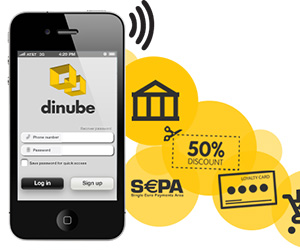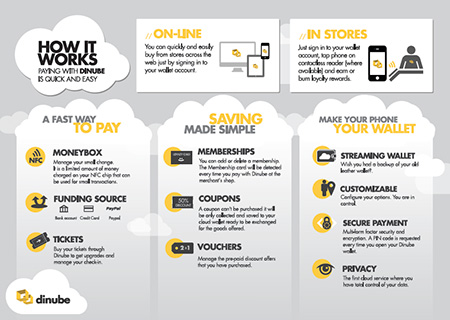One of the most talked-about solutions of the mobile smartphone era is payments. Over the last few years the mobile payments space has simply exploded, with a host of new startups popping up what seems like every week. With options such as Square, Boku, Isis, Paymill, V.me, Google Wallet and the much-hyped Clinkle, all competing for market dominance, consumers and merchants appear spoilt for choice. But are they? The reality is consumers do not have any problem with payments. People can easily use cash, any number of cards and in some places, even cheques to make payments. So, no compelling customer pain-point to solve there. To wit: despite the increasing number of solutions being rolled out, consumer adoption remains low, primarily because their value proposition isn’t that compelling. The question then becomes “do any of the current options really digitalize your wallet?” Simply put, allowing consumers to make in-store purchases virtually, using existing payment methods such as credit cards as the predominant payment method does not add much value – I wouldn’t say converting your phone into a fancy card reader makes your life any easier.
simply exploded, with a host of new startups popping up what seems like every week. With options such as Square, Boku, Isis, Paymill, V.me, Google Wallet and the much-hyped Clinkle, all competing for market dominance, consumers and merchants appear spoilt for choice. But are they? The reality is consumers do not have any problem with payments. People can easily use cash, any number of cards and in some places, even cheques to make payments. So, no compelling customer pain-point to solve there. To wit: despite the increasing number of solutions being rolled out, consumer adoption remains low, primarily because their value proposition isn’t that compelling. The question then becomes “do any of the current options really digitalize your wallet?” Simply put, allowing consumers to make in-store purchases virtually, using existing payment methods such as credit cards as the predominant payment method does not add much value – I wouldn’t say converting your phone into a fancy card reader makes your life any easier.
According to a Nielsen study last year, over 47% of smartphone owners are using shopping apps to search for deals, and to a lesser extent, to make purchases. Tecnilogica, a mobile development and consulting firm based in Madrid calculates that in Europe, 1% of all purchases are now made exclusively via smartphones, a number that is set to rise to 7% in the next 3-5 years. With the mobile device market expected to grow to 1.5 billion smartphones in use by 2017, the mobile payments space is poised for significant growth. With such a huge market in play you can see why everyone is flooding to get a piece of the pie. But with an overwhelming amount of options to choose from, all designed to make payments simpler, which one do you choose?
Dinube, a project originally founded in the legendary MIT Media Lab, set up operations in Barcelona just over 2 years ago. The founders, two MIT Computer Science and Management graduates, claim they have created a fully-independent payment network in the cloud. The solution is multi-platform and can work on any device, (initially Android and i-Phone) and fully interoperable with all mobile phone networks. Dinube will be hitting the market early next year, and the founders describe it essentially as the first “streaming payments system” on the market. Dinube offers a real-time mobile payment and loyalty network in the cloud allowing users “to securely access their wallet from any device connected to the Internet”. It links to multiple payment accounts (banks, credit cards or even Paypal). The killer app, however, is the privacy algorithm Dinube uses. In keeping with true MediaLab ethos, Dinube believes that if you provide personal information and generate data, then that data should belong to you, not to the provider of the service you are using. “You should be the owner of your data,” says Dinube co-founder and president Jonathan Hayes, emphatically. “Everyone is mining your data. Right now, someone else owns it. You don’t. The loss of privacy in the digital age escalates even further with smartphones – securing your data, protecting your web traffic, and encrypting your communications, is crucial.” According to the Wall Street Journal, privacy concerns are shaking up the $120B online advertising business, and reports that the lack of trust in U.S. networks may cost between $22 to $35 billion. “Unlike other players in the space, payments made using Dinube are completed transparently and users determine their level of anonomity with our privacy dashboard. Dinube has digitalized the Euro. It is equivalent to carrying cash in your old leather wallet – except now your wallet is on your smartphone, has a secure lock on it and self-organises your coupons according to your preferences.
The problem with the current status of payments is that business owners and merchants are locked into expensive card schemes and most mobile payment systems are merely new-fangled ways to charge the same old way in a new format. Dinube, on the other hand, is a business-model innovation, enabled by a technological change. Although retailers have the largest customer footprint, they are at end of the payments value chain, resulting in low market power in proportion to their size. Dinube empowers retailers by eliminating commissions and charging a flat fee. When compared with the current card fees (an opaque combination of multilateral discount fees and discount rates, aka “swipe fees”) Dinube can save merchants as much as one third of the cost.
They are clearly doing something right as the startup, which will be launching its MVP early next year, has a long list of top retailers who all want to jump on the bandwagon. Having just picked up a seed round of several hundred thousand from local investors, Dinube is powering up its international team and getting ready for ignition. “We closed the investment with smart money and have a number of key strategic partnerships already in place where we will be doing pre-launch trials,” Jonathan says.







Leave a Reply